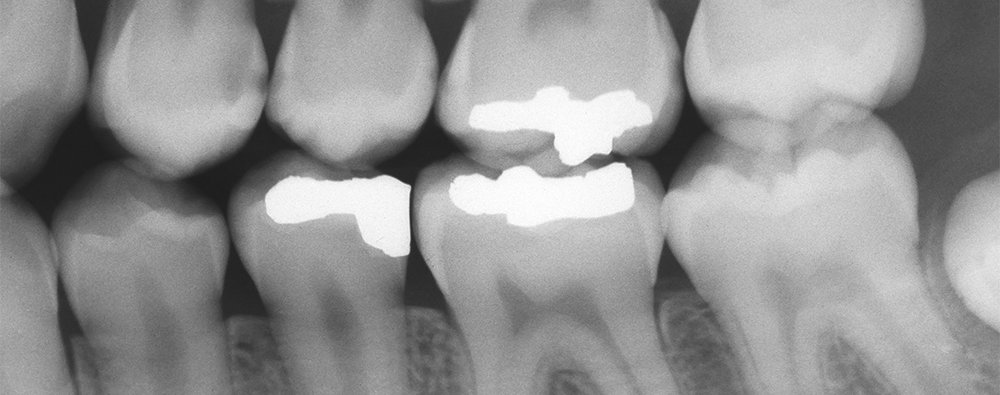That’s a complicated question. Before we answer it, let’s address a couple of related questions first.
First things first: What is a cavity?
A cavity is a hole in a tooth that forms because of untreated tooth decay. A cavity can affect the hard tissues (enamel, dentin and cementum) and soft tissue (pulp) of a tooth. Cavities start off small, but gradually grow if left untreated. Since tooth decay does not always cause pain, cavity progression can often go unnoticed.
So, how does a cavity form?
When a sticky film of bacteria, called plaque, builds up on your teeth, tooth decay can result. Plaque bacteria release acids that destroy tooth enamel, and consuming acidic and sugary foods exacerbates this process. When decay goes untreated and this destructive process is allowed to repeat itself, a cavity can form.
Are cavities contagious?
Contagious. Adjective. Capable of being transmitted by bodily contact with an infected person or object.
Cavities are kind of contagious.
We get it. We don’t think of cavities as being a disease or illness like, say, Chickenpox. But here’s the deal:
- Researchers found that 30% of three-month-olds, 60% of six-month-olds, and 80% of two-year-olds were infected with Streptococcus mutans, a strain of bacteria involved in the process of tooth decay.
- Researchers believe bacteria were passed to children by their parents or guardians, by kissing or sharing items.
So, yes! Cavities can be considered contagious, especially to young children and babies.
How to Prevent Cavities in Children and Babies:
Bacteria can be spread before teeth come in:
- Don’t clean off a baby’s pacifier or bottle nipple with your own mouth or saliva.
- Don’t share cups, eating utensils or food.
- Oral hygiene is important. When teeth start to come in, wipe your child’s mouth each night before bed with a clean, soft cloth to help remove plaque build-up around emerging teeth and gums.
- Don’t send your baby to bed with a bottle. Milk or juice lingering on the teeth overnight will feed the bacteria in their mouth and can cause cavities.
- Do take your child in to have their first dental exam by their first birthday. The dentist can give you tips on helping keep them cavity free and how to care for their smile! It also helps establish a routine so when they get older, they won’t be afraid of the dentist.
How to Prevent Cavities in Adulthood:
Follow these steps to help prevent tooth decay:
- Brush twice daily with a fluoride toothpaste.
- Floss once daily.
- Eat a nutritious and well-balanced diet, and limit sugary foods and frequent snacking.
- Visit your dentist regularly for cleanings and exams.
- Check with your dentist about supplemental fluoride and dental sealants.
Looking for a pediatric dentist? Create or sign in to your MySmile® account to search for an in-network dentist near you. You can even filter your results by patient endorsements!
Ready to Buy Dental Insurance?
The list above is very high-level information. We recommend you always review plan details and get a quote before you purchase a dental insurance plan. We offer 5 plans with different coverage and monthly premiums.












